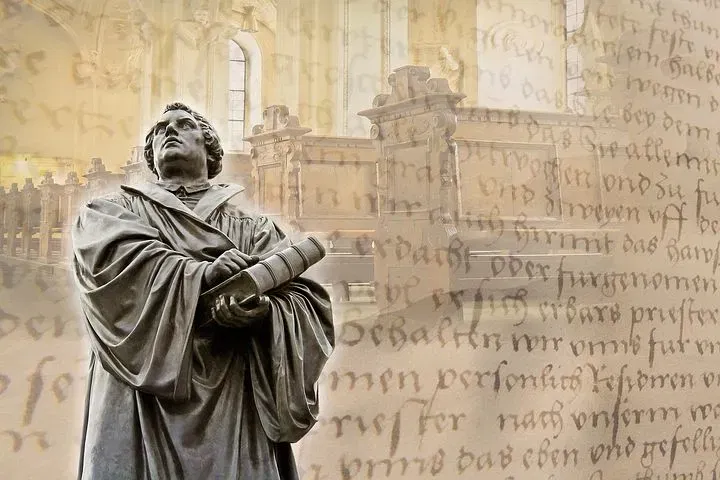A singular courage

God is our refuge and strength, a very present help in trouble. Ps. 46:1
These are the words behind Martin Luther's famous hymn, "A Mighty Fortress is our God." The hymn is a courage-inspiring hymn, because it is all about how the confidence of the Christian is in God himself.
And Luther knew the imperative of courage, especially in defense of the gospel. Today, 505 years ago, Luther nailed 95 theses for debate on the Castle Church door in Wittenberg, Germany. He didn't really expect much from it, for these were just theses for academic debate, written in Latin, but someone got a hold of it, translated it into German, and printed it. They went all over Germany, and sparked what we now know as the Protestant Reformation. For all its faults, the Reformation was basically a back to the Bible movement and centered on a recovery of the gospel in terms of the freeness of God's grace.
But the real crisis came four years later, in 1521, when Luther was summoned to appear at the Diet of the German estates, held that year in the city of Worms. Everyone knew they were going to press Luther to recant his teachings. Even though Luther was promised safe conduct, he knew it didn't really mean much because they had promised the same thing to Jan Huss, and then burnt him alive at the stake. Many of his friends begged him not to go, but Luther responded that if there were as many devils in Worms as there were tiles on the roofs, he would still go, and if he needed to seal his testimony with his blood, so be it.
So he went. He appeared before Charles V, the Emperor of the Holy Roman Empire, and in front of many other officials, including those from the Roman Catholic Church. There was a table in front of him, with stacks of his books upon it. They asked him if he was the author and then if he would recant their teachings. He tried to debate the issues with them, but they only wanted him to recant. He hesitated, and then asked them for some time to consider their request. I don't think anyone expected Luther to ask for extra time, but they granted it to him and told him he had until the next day.
Luther spent all night in prayer with God, wrestling for clear direction and courage. I'm thankful for that, because it shows me he struggled with fear just like the rest of us. Issues of infinite importance were at stake. His own mortal life was at stake. What would he do?
The next day when he appeared, he quietly yet firmly refused to recant, and said what I think are some of the greatest words recorded in the annals of the church: "Unless I am convicted by Scripture and plain reason, I do not accept the authority of popes and counsels, for they have often contradicted themselves; my conscience is captive to the Word of God. I cannot and will not recant, for to go against conscience is neither right nor safe. Here I stand. I can do no other. God help me, Amen."
May God give to each of us the same courage for the gospel.